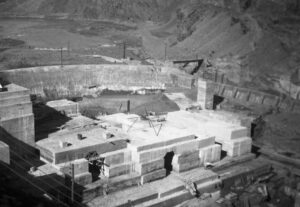Jewish Lybia and Holocaust: Giado, a silence to be broken
 On Holocaust Remembrance Day, a ceremony to commemorate the Jews of Libya persecuted by Nazi-Fascism took place in Rome at the Verano Cemetery on the initiative of Associazione Salvaguardia Trasmissione Retaggio Ebrei di Libia (ASTREL), aimed at protecting the transmission of Lybia Jewish heritage (Association for safeguarding the transmission of the Jewish Heritage of Libya and chaired by David Gerbi. Following, the speech by Rocco Giansante, Head of Educational Programs, Italy & Estonia, at Yad Vashem, focused on the lesser-known history of Giado concentration camp.
On Holocaust Remembrance Day, a ceremony to commemorate the Jews of Libya persecuted by Nazi-Fascism took place in Rome at the Verano Cemetery on the initiative of Associazione Salvaguardia Trasmissione Retaggio Ebrei di Libia (ASTREL), aimed at protecting the transmission of Lybia Jewish heritage (Association for safeguarding the transmission of the Jewish Heritage of Libya and chaired by David Gerbi. Following, the speech by Rocco Giansante, Head of Educational Programs, Italy & Estonia, at Yad Vashem, focused on the lesser-known history of Giado concentration camp.
By Rocco Giansante*
The tragic story of Giado’s concentration camp is ignored by the wider public. While the names of locations such as Auschwitz, Mauthausen or Majdanek have acquired a familiarity that allows them to reference meanings and concepts going well beyond the criminal actions that took place in those same places, the term Giado fails to evoke, not only a landscape but, more importantly, the inhuman tragedy that was consumed there: 562 Libyan Jews were killed in Giado.
No physical trace of what happened can be found in Giado today: the camp’s structures were levelled; the Jewish cemetery was destroyed. What took place in Giado—and sadly in many other places in Libya—was not solely a chapter of the Shoah, but also a mnemocide that dissolved, together with the history of the local Jewish civilization, the memory of the Shoah in Libya.
Today’s ceremony, at the Verano cemetery, is an act of reparation. The tombstones that we dedicate today will honor the memory and safeguard the stories of Jews whose lives were violently shortened in Giado. It is essential for this act of reparation to take place in Rome, in Italy, because the camp of Giado was built by Italian Fascists. The deafening silence that envelops Giado needs to be pierced: Italian responsibilities for what happened to the Jews of Libya need to be clearly stated. This is another act of reparation waits to be performed.
Tombs, statues and monuments — like the ones surrounding us — are erected to keep alive the memories of events and people. But to protect and strengthen that memory, it is more effective to tell the stories, to learn about the lives, the culture, and the communities that Jews in Tripoli, Benghazi, Misurata and elsewhere in Libya, lived, created, and built.
“Joseph Labi was born in 1928 in Benghazi, Libya, to a family of 19. He was the grandson of Rabbi Eliyahu Labi, a rabbi and a religious court judge in Benghazi. Joseph was a member of the Maccabi Zionist movement.
In 1938, when the Italian racial laws were extended to Libya, Joseph and his fellow Jewish students were transferred to a separate school bearing a Star of David. After Joseph’s parents passed away in 1940, his married brothers took him and his younger brothers under their wing.
In 1942, Joseph’s entire family was deported to the Giado concentration camp in Libya. The Libyan Jews were then deported to Italy, where they were interned at Castelnovo ne’ Monti. In February 1944, the Germans sent them to Bergen-Belsen. At first, Joseph refused to eat because the food at the camp was not kosher, but after a week of hunger, he relented.
One of the camp’s prisoners, a religious Jew, proposed that Joseph have a bar mitzvah ceremony. ‘I put on tefillin’, recalled Joseph. “I was asked to share food with those present, but I only had a small potato. Fortunately, a woman secured some perfume. I poured some drops on everyone’s hand and that was my bar mitzvah”.
Joseph was transferred to France in a prisoner exchange deal in March 1945, and from there he made his way to Spain and Portugal. “When we reached Lisbon, we realized that that hell was over for us”.
On returning to Benghazi, Joseph met soldiers from the British Army’s Jewish Brigade who suggested that he come to Eretz Israel. “I went to the train station. Somebody gave me a hat and dressed me in a Jewish Brigade uniform and put a bunch of forms in my pocket,” said Joseph. “I boarded the train dressed as a soldier and we went to Alexandria.”
After being smuggled into Israel, Joseph lived on several kibbutzim, volunteered for the Palmach, and fought in Israel’s War of Independence. He and his wife Yvonne had a son and daughter, seven grandchildren, and a great-granddaughter. He kept the tallit that he received at his bar mitzvah ceremony at Bergen-Belsen.
Joseph Labi was one of the Jews who survived. Other stories are waiting to be told and handed down to the next generations. So that Giado will not remain a word unknown to many.
Maybe the memory of the 562 martyrs be a blessing:
Above, Giado concentration camp (also spelled Jado), a former army base, which was the harshest labor camp in Libya during WWII.
*Head, Educational Programs, Italy & Estonia
Overseas Education and Training Department
The International School for Holocaust Studies|Yad Vashem
